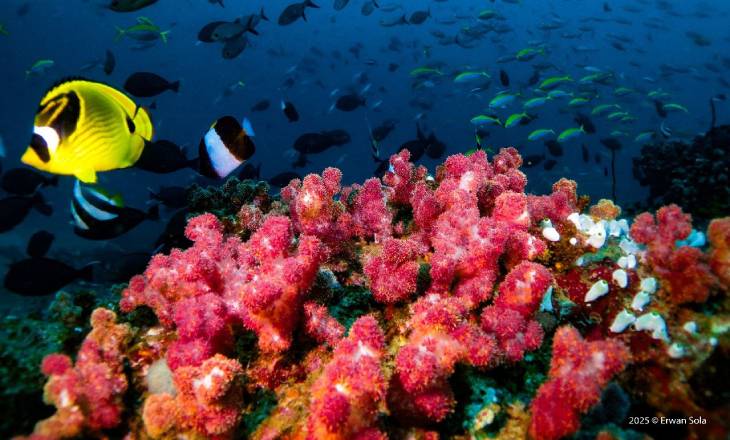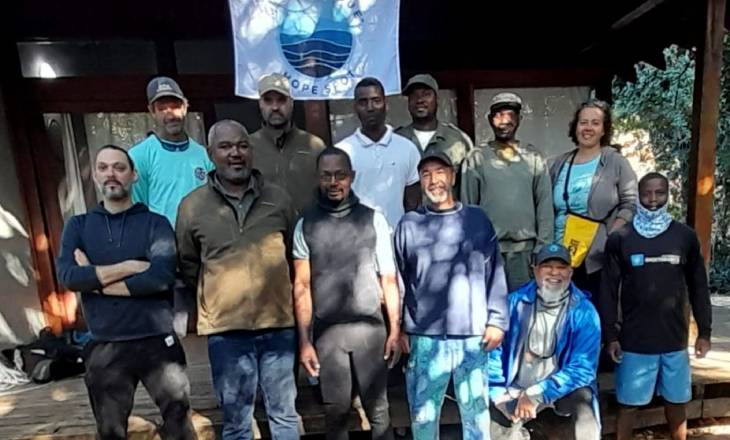Between June 27 and July 2, 2025, the first phase of data collection for the baseline study of the Techobanine Reef System (SRT), the largest Marine Total Protection Area of Maputo National Park (PNAM), took place. The initiative, led by the Likhulu Foundation, is financially supported by BIOFUND through the Biodiversity Conservation Programme, funded by Sweden and other entities, and is carried out in close collaboration with Maputo National Park.
Published at 01/08/2025
BIOFUND Supports Assessment of the Techobanine Reefs in Maputo National Park
During this phase, an extensive bathymetric survey was conducted, allowing the collection of more than 50,000 georeferenced data points. The technical team covered over 500 kilometres in open sea, mapping the seabed and identifying 185 potential sites for future scientific diving activities.
Based on the information collected and field observations, 24 priority sites were also identified, considered suitable for in-depth studies of coral, fish, invertebrate, and marine megafauna communities. During this first mission, several emblematic species were observed, including the green turtle, manta ray, potato grouper, and blacktip shark, reinforcing the ecological importance of the area.
In the next phases of the project, water, sediment, and marine tissue samples will be collected for environmental DNA (eDNA) analysis. This innovative technique will provide a broader understanding of the biodiversity present in the reefs, using genetic traces found in the environment without the need for direct visualisation.
The assessment of the Techobanine reefs represents a significant contribution to the management and conservation of the marine ecosystems of Maputo National Park. The data collected will enable more informed and sustainable decisions, reinforcing the protection of this unique ecosystem.



